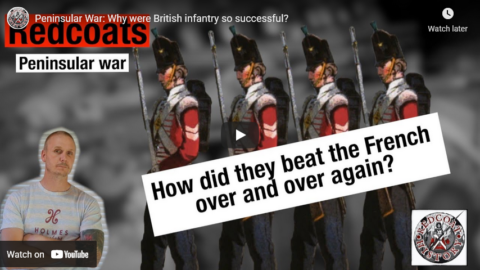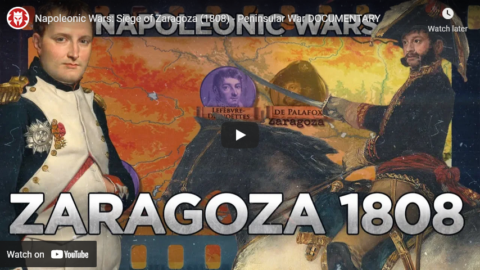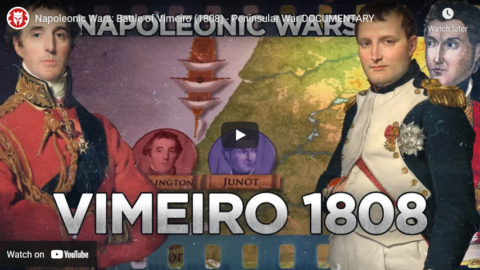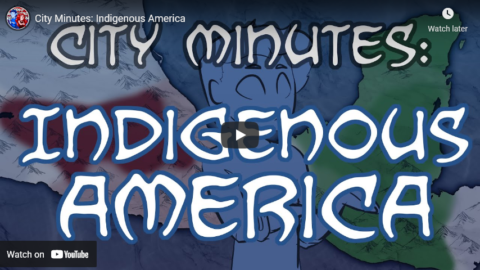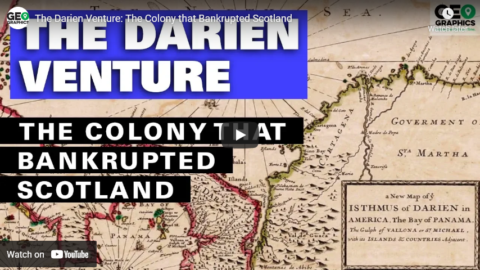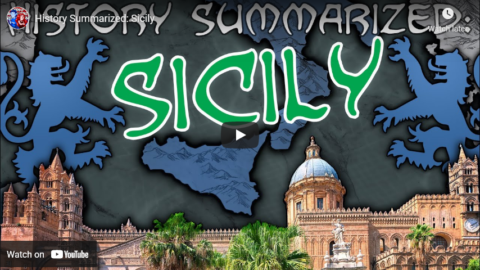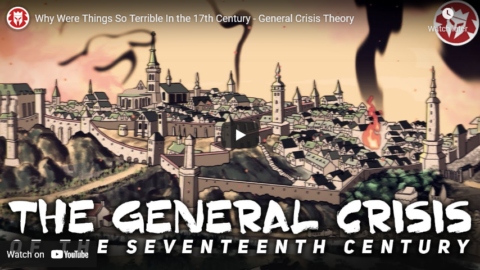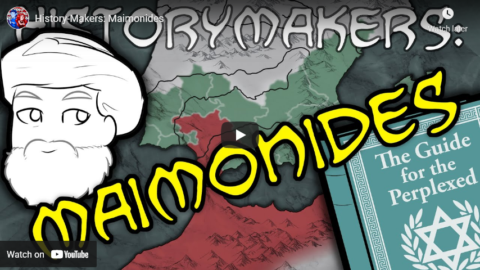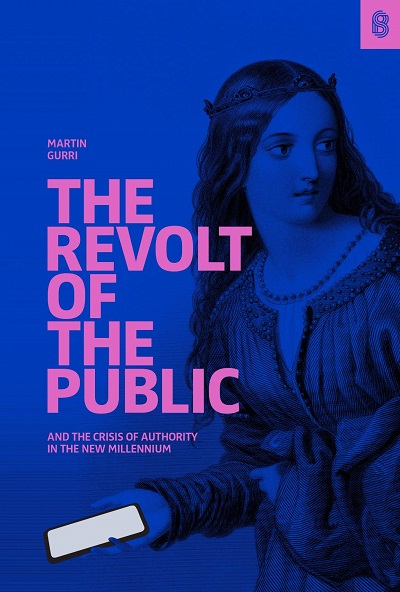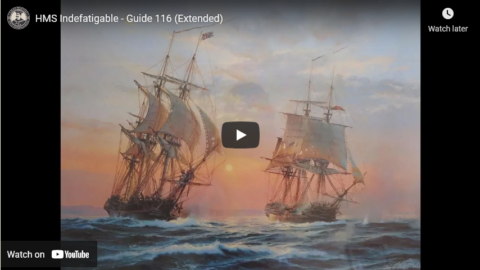They could not struggle against Nazism or Fascism, because they could not understand them. Neither could they have struggled against Communism, if Communism had been a serious force in western Europe. To understand Fascism they would have had to study the theory of Socialism, which would have forced them to realize that the economic system by which they lived was unjust, inefficient and out of date. But it was exactly this fact that they had trained themselves never to face. They dealt with Fascism as the cavalry generals of 1914 dealt with the machine gun – by ignoring it. After years of aggression and massacres, they had grasped only one fact, that Hitler and Mussolini were hostile to Communism. Therefore, it was argued, they must be friendly to the British dividend-drawer. Hence the truly frightening spectacle of Conservative M.P.s wildly cheering the news that British ships, bringing food to the Spanish Republican government, had been bombed by Italian aeroplanes. Even when they had begun to grasp that Fascism was dangerous, its essentially revolutionary nature, the huge military effort it was capable of making, the sort of tactics it would use, were quite beyond their comprehension. At the time of the Spanish Civil War, anyone with as much political knowledge as can be acquired from a sixpenny pamphlet on Socialism knew that, if Franco won, the result would be strategically disastrous for England; and yet generals and admirals who had given their lives to the study of war were unable to grasp this fact. This vein of political ignorance runs right through English official life, through Cabinet ministers, ambassadors, consuls, judges, magistrates, policemen. The policeman who arrests the “Red” does not understand the theories the “Red” is preaching; if he did, his own position as bodyguard of the monied class might seem less pleasant to him. There is reason to think that even military espionage is hopelessly hampered by ignorance of the new economic doctrines and the ramifications of the underground parties.
The British ruling class were not altogether wrong in thinking that Fascism was on their side. It is a fact that any rich man, unless he is a Jew, has less to fear from Fascism than from either Communism or democratic Socialism. One ought never to forget this, for nearly the whole of German and Italian propaganda is designed to cover it up. The natural instinct of men like Simon, Hoare, Chamberlain, etc. was to come to an agreement with Hitler. But – and here the peculiar feature of English life that I have spoken of, the deep sense of national solidarity, comes in – they could only do so by breaking up the Empire and selling their own people into semi-slavery. A truly corrupt class would have done this without hesitation, as in France. But things had not gone that distance in England. Politicians who would make cringing speeches about “the duty of loyalty to our conquerors” are hardly to be found in English public life. Tossed to and fro between their incomes and their principles, it was impossible that men like Chamberlain should do anything but make the worst of both worlds.
One thing that has always shown that the English ruling class are morally fairly sound, is that in time of war they are ready enough to get themselves killed. Several dukes, earls and what-not were killed in the recent campaign in Flanders. That could not happen if these people were the cynical scoundrels that they are sometimes declared to be. It is important not to misunderstand their motives, or one cannot predict their actions. What is to be expected of them is not treachery or physical cowardice, but stupidity, unconscious sabotage, an infallible instinct for doing the wrong thing. They are not wicked, or not altogether wicked; they are merely unteachable. Only when their money and power are gone will the younger among them begin to grasp what century they are living in.
George Orwell, “The Lion And The Unicorn: Socialism and the English Genius”, 1941-02-19.
January 17, 2022
January 4, 2022
Peninsular War: Why were British infantry so successful?
Redcoat: British military history
Published 16 Dec 2021Why were the British redcoats so successful in the Peninsular war? There were many reasons, but amongst them was the way regiments were organised and the tactics they employed.
If you are interested in the Zulu War, then please sign up for my mailing list to receive my free book on the subject: www.redcoathistory.com
If you are very generous, you can also buy me a coffee and help support the channel via https://ko-fi.com/redcoathistory
November 19, 2021
Bismarck Gets Closer To German Unification – A New Spanish King I GLORY & DEFEAT
Real Time History
Published 18 Nov 2021Sign up for Curiosity Stream and get Nebula bundled in and SAVE 26%: https://curiositystream.com/realtimeh…
While the Franco-Prussian War is continuing its messy guerilla phase, the German leaders are negotiating towards a united Germany. Hesse and Baden join the promptly renamed German Confederation — but Württemberg and Bavaria still want more concessions. Meanwhile the question of Spanish succession that started the war is solved in Madrid.
» THANK YOU TO OUR CO-PRODUCERS
John Ozment
James Darcangelo
Jacob Carter Landt
Thomas Brendan
James Giliberto
Kurt Gillies
Albert B. Knapp MD
Tobias Wildenblanck
Richard L Benkin
Scott Deederly
John Belland
Adam Smith
Taylor Allen
Jim F Barlow
Rustem Sharipov» OUR PODCAST
https://realtimehistory.net/podcast – interviews with historians and background info for the show.» LITERATURE
Arand, Tobias: 1870/71. Der Deutsch-Französische Krieg erzählt in Einzelschicksalen. Hamburg 2018Gouttman, Alain: La grande défaite. 1870-1871. Paris 2015
Koch, Roland : “Les canons à balles dans l’armée du Rhin en 1870” in Revue historique des armées, 255 (2009), p. 95-107.
» SOURCES
Braun, Lily (Hrsg): Kriegsbriefe aus den Jahren 1870/71 von Hans von Kretschman weiland General der Infanterie. Berlin 1911Carr, Raymond: Spain 1808–1939. Oxford: At the Clarendon Press, 1975
Deuerlein, Ernst: Die Gründung des Deutschen Reichs 1870/71 in Augenzeugenberichten. Düsseldorf 1970
Goncourt, Edmond de: Journal des Goncourts. II.1. 1870-1871. Paris 1890
Kühnhauser, Florian: Kriegs-Erinnerungen eines Soldaten des königlich bayerischen Infanterie Leibregiments. Partenkirchen 1898
Lowndes, Emma: Récits de femmes pendant la guerre franco-prussienne (1870-1871). Paris, 2013.
Meisner, Heinrich Otto (Hrsg.): Kaiser Friedrich III. Das Kriegstagebuch von 1870/71. Berlin, Leipzig 1926
N.N: + Amadeus von Savoyen in: Neue Presse v. 19. Januar 1890. S. 2
N. N. (Hrsg.): Bismarcks Briefe an seine Gattin aus dem Kriege 1870/71. Stuttgart, Berlin 1903
Schikorsky, Isa (Hrsg.). “Wenn doch dies Elend ein Ende hätte”. Ein Briefwechsel aus dem Deutsch-Französischen Krieg 1870/71. Köln, Weimar, Wien 1999
» OUR STORE
Website: https://realtimehistory.net»CREDITS
Presented by: Jesse Alexander
Written by: Cathérine Pfauth, Prof. Dr. Tobias Arand, Jesse Alexander
Director: Toni Steller & Florian Wittig
Director of Photography: Toni Steller
Sound: Above Zero
Editing: Toni Steller
Motion Design: Philipp Appelt
Mixing, Mastering & Sound Design: http://above-zero.com
Maps: Battlefield Design
Research by: Cathérine Pfauth, Prof. Dr. Tobias Arand
Fact checking: Cathérine Pfauth, Prof. Dr. Tobias ArandChannel Design: Battlefield Design
Contains licensed material by getty images
All rights reserved – Real Time History GmbH 2021
November 9, 2021
Napoleonic Wars: Siege of Zaragoza (1808) – Peninsular War
Kings and Generals
Published 30 Sep 2018
Our animated historical documentary series on the Napoleonic Wars are back with another episode covering the Peninsular War. The armies of Napoleon face more rebellions this time in Spain. And if the battle of Vimiero was crucial for the resistance in Portugal, the Siege of Zaragoza of 1808 played the similar role for the northern part of Spain. The battle of Bailen is just around the corner, and the Peninsular campaign will only get more interesting from here.This script was researched and written by Everett Rummage. Check out his brilliant Age of Napoleon podcast – http://bit.ly/2vC3cIE In our opinion, it is the best podcast on the Napoleonic era.
Support us on Patreon: http://www.patreon.com/KingsandGenerals or Paypal: http://paypal.me/kingsandgenerals
We are grateful to our patrons and sponsors, who made this video possible: https://drive.google.com/open?id=1KEV…
This video was narrated by Officially Devin (https://www.youtube.com/user/OfficiallyDevin)
Machinimas were made on NTW3 mod for Napoleon Total War by Malay Archer (https://www.youtube.com/user/Mathemed…)
Merch store ► teespring.com/stores/kingsandgenerals
Twitch ► https://www.twitch.tv/nurrrik_phoenix
Twitter ► https://twitter.com/KingsGenerals
Instagram ► http://www.instagram.com/Kings_Generals
Production Music courtesy of Epidemic Sound: http://www.epidemicsound.com
Napoleon Total War OST – “HMS Victory”
Napoleon Total War OST – “The Battle At Arcole”
Jon Björk – “Downfall 1”
Johannes Bornlöf – “Imperious 2”
Johannes Bornlöf – “Rise of the Phoenix 2”
Johannes Bornlöf – “Solemn”
Andreas Jamsheree – “Sunstorm 1”#Documentary #Kingsandgenerals #Napoleon
November 4, 2021
Napoleonic Wars: Battle of Vimeiro (1808) – Peninsular War
Kings and Generals
Published 12 Aug 2018Napoleonic Wars are back! It is 1807, and we find the Emperor of the French Napoleon Bonaparte at the height of his power, as he controls most of Europe after the War of the Fourth Coalition and the treaties of Tilsit. Napoleon decided to strangle his remaining enemy the United Kingdom economically by enacting Europe-wide Colonial Blockade, yet as Portugal defied him, he invaded it and then Spain. This was the beginning of the Peninsular War. Soon Spain and Portugal were in open rebellion. The first phase of the war ended when the British forces under Wellington landed in Portugal and fought the French General Junot at Vimeiro.
This script was researched and written by Everett Rummage. Check out his brilliant Age of Napoleon podcast – http://bit.ly/2vC3cIE In our opinion, it is the best podcast on the Napoleonic era.
Support us on Patreon: http://www.patreon.com/KingsandGenerals or Paypal: http://paypal.me/kingsandgenerals
We are grateful to our patrons and sponsors, who made this video possible: https://drive.google.com/open?id=1jjh…
This video was narrated by Officially Devin (https://www.youtube.com/user/OfficiallyDevin)
Machinimas were made on NTW3 mod for Napoleon Total War by Malay Archer (https://www.youtube.com/user/Mathemed…)
Merch store ► teespring.com/stores/kingsandgenerals
Twitch ► https://www.twitch.tv/nurrrik_phoenix
Twitter ► https://twitter.com/KingsGenerals
Instagram ► http://www.instagram.com/Kings_Generals
Production Music courtesy of Epidemic Sound: http://www.epidemicsound.com
#Documentary #Kingsandgenerals #Napoleon
October 16, 2021
City Minutes: Indigenous America
Overly Sarcastic Productions
Published 15 Oct 2021As we look at four pre-Columbian American cities, I don’t know whether to be more impressed with the the architecture or the landscaping. Probably both.
More Indigenous Myths & History:
The Five Suns (https://youtu.be/dfupAlon_8k)
Quetzalcoatl (https://youtu.be/451jzIesWoU)
Huitzilopotchli (https://youtu.be/Zj-jDOjBets)
El-Dorado (https://youtu.be/UHzkGueRz3g)
Pele (https://youtu.be/q1z19p48lZU)
Hawaii (https://youtu.be/xYouQESFE2A)Teotihuacan shirt: https://www.redbubble.com/shop/ap/903…
Timestamps:
0:00 – 1:03 — Teotihuacan
1:03 – 2:04 — Tikal
2:04 – 3:00 — Tenochtitlan
3:00 – 4:08 — Cusco
4:08 – 5:20 — ConclusionSOURCES & Further Reading: The Great Cities in History by John Julius Norwich, The Great Courses lectures “The Great City of Teotihuacan” and “Tikal – Aspiring Capital of the Maya World” and “The Aztec Capital of Tenochtitlan” from lecture series Maya to Aztec: Ancient Mesoamerica Revealed by Edwin Barnhart, and “Machu Picchu and the Sacred Valley” and “The Inca – From Raiders to Empire” from lecture series The Lost Worlds of South America by Edwin Barnhart.
Our content is intended for teenage audiences and up.
PATREON: https://www.Patreon.com/OSP
PODCAST: https://overlysarcasticpodcast.transi…
DISCORD: https://discord.gg/osp
MERCH LINKS: http://rdbl.co/osp
OUR WEBSITE: https://www.OverlySarcasticProductions.com
Find us on Twitter https://www.Twitter.com/OSPYouTube
Find us on Reddit https://www.Reddit.com/r/OSP/
October 11, 2021
The Darien Venture: The Colony that Bankrupted Scotland
Geographics
Published 14 Nov 2019If a Nation’s wealth and power were to be measured in stubbornness, resilience, and inventiveness, rather than GDP, Scotland would be a top-5 superpower. The people that brought to you televisions, refrigerators, penicillin, and gin & tonic have gone through many a rough patch throughout their history. Very often, hard times were related to their rocky relationship with their Southern neighbours, the English.
Credits:
Host – Simon Whistler
Author – Arnaldo Teodorani
Producer – Jennifer Da Silva
Executive Producer – Shell HarrisBusiness inquiries to admin@toptenz.net
QotD: Columbus Day
It was Columbus Day yesterday, where historically, Americans have celebrated the discovery of the “New world” by Christopher Columbus’ little fleet in 1492. Now, historically there were previous discoveries of parts of the Americas by Europeans. Vikings encountered Newfoundland in roughly 1000 and even had a small settlement there. Some writings indicate that an explorer named Brendan encountered the Americas in the sixth century AD. Chinese apparently had landed on the Pacific coast as early as 3300 years ago.
But when Columbus landed on the Caribbean Island of San Salvador in the Bahamas, he set off a wave of exploration and colonization which the previous discoveries had not. The Viking and Chinese settlements did not last, but the post-Columbian ones did. And that is an incredibly significant historical event, no matter how you view history.
In the 1970s it became popular on the left to consider Columbus a monster, a villain who gave the innocent and peaceful natives diseases, enslaved them, wiped out their culture, and destroyed all that was good. This theory teaches that the American natives were all good and peaceful and wonderful and just and true and righteous. They all ate free trade non-GMO gluten free food and were perfectly multicultural and non-judgmental, free of war and with perfect gender equality. Columbus, an evil white European showed up and ruined it all. In short, Columbus he infected the Eden-like paradise of the Americas with his Euro-masculinity.
And the origin of this theory is that of the Noble Savage. There were people living outside the evil corrupting influence of White European Males, and Columbus found them and ruined everything. That’s why when you hear someone talking about this, they never mention the nearly-constant wars, cannibalism, human sacrifice, rape, pillaging, genocide, disease, poverty, and incredible lack of technical and scientific, artistic, and literary knowledge of the native peoples of America.
Columbus was a man of his time, and a particularly greedy one at that. He ripped off his own people, acting as the King’s supreme representative and authority in the Americas (which at the time was not known to be as vast as it is). He took credit for what others did, he took over what they developed, he took the riches they found, and so on. And yes, he and his men enslaved the local natives, and because of their culture of “free love” spread European venereal diseases among the natives they were not exposed to before. Entire tribes were wiped out by the infections they had no resistances to.
Of course, the natives spread disease among the Europeans they hadn’t been exposed to, either, such as Typhus and Syphilis, and the natives were murderous and killed Europeans but those are details that modern revisionist historians either ignore, gloss over, or present as a rough sort of justice: they had it coming for daring to set foot in the Eden of the Americas.
Objectively, neither side was particularly admirable, as one would expect if you understand innate and original sin. If what’s bad comes from within us rather than outside influences, then its spread evenly throughout all humanity without regard to creed, culture, race, or location. The natives were bad because people are bad. The Spaniards and Columbus (who was Italian) was bad, because people are bad.
Christopher Taylor, “Eden Ruined By Italian”, Word Around the Net, 2018-10-09.
October 4, 2021
History Summarized: Sicily
Overly Sarcastic Productions
Published 1 Oct 2021The plot twist of Medieval Italian History is that the main event was happening in the South — In the centuries before the Renaissance, Sicily and southern Italy were sporting one of the most spectacular cultures in the world, combining the greatest hits of Mediterranean history in one place. It’s way cool, you guys.
SOURCES & Further Reading: Sicily: An Island at the Crossroads of History by John Julius Norwich, The Great Cities in History by John Julius Norwich, Great Courses Lectures “Muslims in the Court Of Roger II – 1130” from Turning Points in Middle Eastern History by Eamonn Gerron and “Renaissance Italy’s Princes and Rivals” from Renaissance: The Transformation of the West by Jennifer McNabb
This video’s topic was requested by our patron Salvatore Corasaniti. Thank you for supporting our channel!
Our content is intended for teenage audiences and up.
PATREON: https://www.Patreon.com/OSP
PODCAST: https://overlysarcasticpodcast.transi…
DISCORD: https://discord.gg/osp
MERCH LINKS: http://rdbl.co/osp
OUR WEBSITE: https://www.OverlySarcasticProductions.com
Find us on Twitter https://www.Twitter.com/OSPYouTube
Find us on Reddit https://www.Reddit.com/r/OSP/
From the comments:
Overly Sarcastic Productions
2 days ago
I can’t even begin to describe how much Ancient Sicily Content™ I had to cut for time.
Fear not, Magna Graecia will get the spotlight it deserves in another video.
-B
September 27, 2021
Why Were Things So Terrible In the 17th Century – General Crisis Theory
Kings and Generals
Published 26 Sep 2021
Go to https://NordVPN.com/kingsandgenerals and use code
kingsandgeneralsto get a 2-year plan with a huge discount plus 4 additional months for free. Protect yourself online today!Kings and Generals animated historical documentary series on early modern history and economic history continue with a video on the general crisis theory, as we try to deduce why the 17th century events were so terrible and why so many wars, rebellions, and upheavals happened in this period
Support us on Patreon: http://www.patreon.com/KingsandGenerals or Paypal: http://paypal.me/kingsandgenerals. We are grateful to our patrons and sponsors, who made this video possible: https://docs.google.com/document/d/1o…
The video was made by EdStudio while the script was researched and written by Turgut Gambar. Narration by Officially Devin (https://www.youtube.com/user/OfficiallyDevin)
Merch store ► teespring.com/stores/kingsandgenerals
Podcast ► http://www.kingsandgenerals.net/podcast/
Twitter ► https://twitter.com/KingsGenerals
Instagram ► http://www.instagram.com/Kings_Generals
Production Music courtesy of Epidemic Sound: http://www.epidemicsound.com
#Documentary #EarlyModern #GeneralCrisis
September 20, 2021
History-Makers: Maimonides
Overly Sarcastic Productions
Published 17 Sep 2021“From Moses to Moses, there was none like Moses.” Jump into 1100s Cordoba & Cairo as we take a look at the life of one of the Medieval world’s most boundary-breaking History-Makers: Moses Maimonides!
SOURCES & Further Reading: Great Courses lectures “Jewish Scholar in Cairo: Moses Maimonides” from The History and Achievements of the Islamic Golden Age by Eamonn Gearon and “Maimonides and Jewish Law” from Great Minds of the Medieval World by Dorsey Armstrong. Britannica “Maimonides” https://www.britannica.com/biography/…, Stanford Encyclopedia of Philosophy “Maimonides” https://plato.stanford.edu/entries/ma…, The Guide For The Perplexed, Mishne Torah and Commentary on the Mishnah by Maimonides
Special thanks to Yellow/LudoHistory for his assistance in checking over my script. You can check out his livestreams playing historically-inspired videogames over at https://www.twitch.tv/ludohistory
Our content is intended for teenage audiences and up.PATREON: https://www.Patreon.com/OSP
PODCAST: https://overlysarcasticpodcast.transi…
DISCORD: https://discord.gg/osp
MERCH LINKS: http://rdbl.co/osp
OUR WEBSITE: https://www.OverlySarcasticProductions.com
Find us on Twitter https://www.Twitter.com/OSPYouTube
Find us on Reddit https://www.Reddit.com/r/OSP/
September 18, 2021
September 9, 2021
Did Freudian Psychology Create Modern Art? | B2W: ZEITGEIST! I E.25 Harvest 1924
TimeGhost History
Published 8 Sep 2021The Surrealist Movement is born this season with unsurprising eccentric drama. Salvador Dali will one day be a part of it, but for now he is still in art school and has actually only just come out of prison. Also this season, a crime which sees police chasing America’s first ever “Public Enemy No. 1”
(more…)
August 24, 2021
Aztec Chocolate – Blood & Spice
Tasting History with Max Miller
Published 9 Mar 2021Help Support the Channel with Patreon: https://www.patreon.com/tastinghistory
Tasting History Merchandise: crowdmade.com/collections/tastinghistoryFollow Tasting History here:
Instagram: https://www.instagram.com/tastinghist…
Twitter: https://twitter.com/TastingHistory1
Tiktok: TastingHistory
Reddit: r/TastingHistory
Discord: https://discord.gg/d7nbEpyTasting History’s Amazon Wish List: https://amzn.to/3i0mwGt
LINKS TO INGREDIENTS & EQUIPMENT**
Sony Alpha 7C Camera: https://amzn.to/2MQbNTK
Sigma 24-70mm f/2.8 Lens: https://amzn.to/35tjyoW
Molinillo: https://amzn.to/3rpoXGJ
Cacao Beans: https://amzn.to/3v4feIe
Cacao Nibs: https://amzn.to/3sX7JAU
Achiote/Annatto Powder: https://amzn.to/3rpWe4CLINKS TO SOURCES**
The Secret Life of Chocolate by Marcos Patchett: https://amzn.to/3qoLOB1
For more information visit thesecretlifeofchocolate.com
The True History of Chocolate by Sophie & Michael Coe: https://amzn.to/3sWBl1f
Florentine Codex by Bernardino de Sahagún: https://amzn.to/2OrKiAE
Thomas Gage’s Travels in the New World: https://amzn.to/3sO3YxA**Some of the links and other products that appear on this video are from companies which Tasting History will earn an affiliate commission or referral bonus. Each purchase made from these links will help to support this channel with no additional cost to you. The content in this video is accurate as of the posting date. Some of the offers mentioned may no longer be available.
Subtitles: Jose Mendoza
PHOTO CREDITS
Metate et Mano: Yelkrokoyade, CC BY-SA 3.0 https://creativecommons.org/licenses/…, via Wikimedia Commons
Olmec Head No 3: By Maribel Ponce Ixba (frida27ponce) – Flickr, CC BY 2.0, https://commons.wikimedia.org/w/index…#tastinghistory #aztec #chocolate
August 20, 2021
HMS Indefatigable – Guide 116 (Extended)
Drachinifel
Published 6 Apr 2019HMS Indefatigable, a razee frigate of the British Royal Navy, is today’s subject.
Want to support the channel? – https://www.patreon.com/Drachinifel
Want to talk about ships? https://discord.gg/TYu88mt
Want to get some books? www.amazon.co.uk/shop/drachinifel

